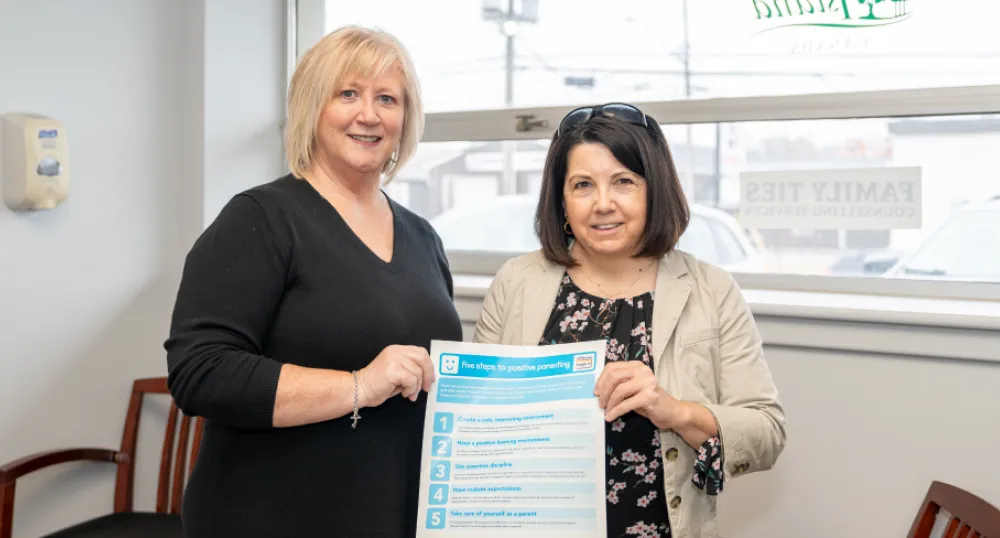Positive Parenting: the Triple P approach

Parenting is full of joys– and challenges.
Sometimes, a little extra support can go a long way. That’s where Triple P comes in. It stands for Positive Parenting Program.
“Triple P recognizes that parenting is a tough job, and that it’s okay, even normal, to need support,” says Kelly MacWilliams, a social worker and the provincial Triple P Parenting Program Coordinator.
The program, available for free Island-wide, helps parents and caregivers understand their child’s behaviour better, and provides tips and strategies to build stronger relationships and manage challenging behaviours.
“It gives them tools for their parenting toolbox that they can use as needed,” MacWilliams says.
There are 20 different Triple P courses, delivered in different ways including group format, one-to-one, and online. The program was implemented in Prince Edward Island in 2015, to address a gap in parenting supports within the community.
So, what is the positive parenting approach all about? There are five key components to Triple P:
- Having a safe and interesting environment for your child;
- Having a positive learning environment for your child;
- Using assertive discipline;
- Having realistic expectations for your child and for yourself as a parent; and
- Taking care of yourself.
Research on Triple P has shown that these positive strategies improve parenting skills and confidence, as well as children’s behavior and mental health, in both the short and long term.
“When children feel better, they behave better,” MacWilliams says. “And that makes parenting a bit easier.”
Nancy Jackson, a Case Aide with Child and Family Services and a Triple P practitioner, says she sees immediate benefits for parents who take the course.
“In my experience parents often focus on their child’s behaviour. After starting this program, I see them gaining more understanding that behavior is a form of communication,” she explains. “The program gives them the skills and confidence to look past the child’s behavior to identify things that have been influencing the behaviour.”
And the benefits wrap around the whole family. “I witness how youth feel they are being heard and can have more open discussions with their family to identify their emotions and feelings,” Jackson says.
Examples of Triple P courses include: Triple P for Baby, Triple P under 12, Teen Triple P, and Fear-less Triple P, which is all about strategies for managing children’s anxiety.
“Triple P allows parents and caregivers to decide what is important to them,” Jackson explains. “It doesn't tell you how to raise your children, but gives you the confidence and skills to build good relationships, set boundaries and rules, and follow up with consequences that aren't harmful.”
“We just want Islanders to know they are not alone in their parenting journey, and for any challenges they may be facing, Triple P is here for them,” MacWilliams adds.
To learn more, and to find the Triple P resources that are the best fit for your needs, call 902-368-6762, email triplep@gov.pe.ca, or visit, Triple P - Parenting Program.
